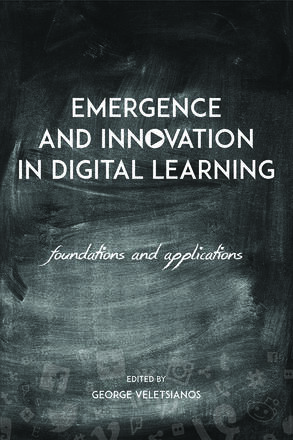
Emergence and Innovation in Digital Learning
Foundations and Applications
Description
Educational systems worldwide are facing an enormous shift as a
result of sociocultural, political, economic, and technological
changes. The technologies and practices that have developed over the
last decade have been heralded as opportunities to transform both
online and traditional education systems. While proponents of these new
ideas often postulate that they have the potential to address the
educational problems facing both students and institutions and that
they could provide an opportunity to rethink the ways that education is
organized and enacted, there is little evidence of emerging
technologies and practices in use in online education. Because
researchers and practitioners interested in these possibilities often
reside in various disciplines and academic departments the sharing and
dissemination of their work across often rigid boundaries is a
formidable task.
Contributors to Emergence and Innovation in Digital Learning
include individuals who are shaping the future of online learning with
their innovative applications and investigations on the impact of
issues such as openness, analytics, MOOCs, and social media. Building
on work first published in Emerging Technologies in Distance
Education, the contributors to this collection harness the
dispersed knowledge in online education to provide a one-stop locale
for work on emergent approaches in the field. Their conclusions will
influence the adoption and success of these approaches to education and
will enable researchers and practitioners to conceptualize, critique,
and enhance their understanding of the foundations and applications of
new technologies.